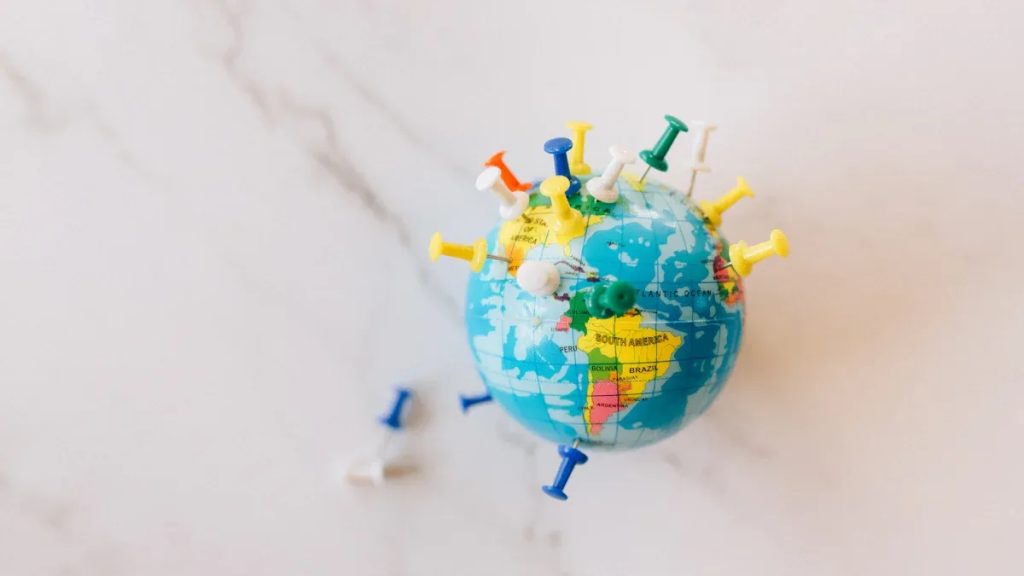You likely hear accents all the time. You might listen to someone and think about their home. Accents are how people say words in special ways. If you wonder why do people have accents, it is because of their family, their background, and their community. You can hear many accents at school, at work, or online. Accents make language fun. They show who you are and help you feel close to others.
Key Takeaways
- Accents come from how you learn to talk as a kid. Your family, friends, and teachers help shape how you say words.
- Where you live and who you talk to can change your accent. If you live far from others, you may speak differently. Talking with many people can change how you sound.
- Accents show where you come from and your culture. They can change how people think about you.
- It is important to know the difference between accent and dialect. Accent means how you say words. Dialect means the words and grammar you use.
- Accents can change if you move or hear new things. Talking with others and practicing can change how you speak.
Why Do People Have Accents?
When you think about why people have accents, you start to hear how every voice is a bit different. If you listen to someone from another city or country, you can often tell they are from somewhere else. Accents help you know where someone is from and sometimes even how old they are. You might ask why we have accents at all. The answer is in how you learn to talk and listen when you are a child.
Pronunciation Differences
You get your accent from how you say words. Your family, friends, and teachers all help shape how you speak. Here are some main reasons people have accents:
- When you are young, hearing language shapes your accent. Your brain learns sounds and what they mean.
- Your first language sets the rules for the sounds you can make. This gives you a special way of saying words.
- The age you learn a new language matters. If you learn after puberty, you will probably keep your first accent.
You can hear different ways of saying words in many places. For example:
- Where you live, moving to new places, and your social group can make speech sound different in the United States.
- North American English has different accents with special vowel and consonant sounds.
- The Australian accent uses long vowels and goes up at the end of sentences.
- The Kiwi accent changes the short ‘i’ to a ‘u’, so “fish and chips” sounds like “fush and chups”.
- The South African accent has short words and rolled ‘r’s.
- The Southern American accent makes vowels longer and sounds musical.
- The Cockney accent drops ‘h’ sounds and changes ‘th’ to ‘f’ or ‘v’.
- The Mumbai accent mixes ‘v’ and ‘w’ sounds and puts stress on words in a special way.
- The Parisian French accent uses soft ‘h’ sounds and nose sounds.
- Jamaican Patois mixes English with West African rhythms.
Tip: If you listen carefully, you can hear these ways of speaking in daily life. Try to notice how “about” sounds like “aboot” in Canadian English or how Cockney speakers change sounds.
Prosody and Speech Patterns
Prosody is the rhythm, pitch, and stress in your speech. These things help make accents sound different. You use prosody to show feelings, ask questions, or make statements. People from different places use prosody in their own ways, which makes their accents stand out.
Here is a table that shows how prosody changes how you hear accents:
| Prosodic Feature | Influence on Accent Perception |
|---|---|
| Pitch | Changes in pitch can show feelings or meaning, helping you notice accents. |
| Timing | The rhythm of speech makes accents sound special. |
| Stress | Putting stress on some words shows different accents. |
| Intonation | The tune of speech helps you spot accents. |
You can see prosody when someone says “cat” with a rising pitch to ask a question or a falling pitch to make a statement. These changes help you see why people have accents and how you can tell them apart.
- Glasgow English uses less force and shorter vowels than Standard Southern British English.
- Some accents, like SSBE, make vowels longer at the end of phrases.
- Accents can be hard to understand if you are not used to their rhythm or way of saying words.
- How often people use certain vowels and consonants also makes it easier or harder to understand different accents.
Note: Older people often find it harder to understand speech with an accent. They may have trouble with English, especially if the accent is new to them. Accented English can have timing and rhythm that older people do not hear well, so it is less clear.
When you listen to people from different places, you hear many ways of talking. You learn why people have accents by paying attention to how they say words and use prosody. These things make every accent special and help you connect with others.
What Are Accents?
When you listen to people from other places, you notice differences. Everyone speaks in their own way. Linguists say accents are special ways people say words. You can hear these differences in words like “car” or “water.” Accents show where you come from. They help others guess your background. You might hear many kinds of English. Each one sounds a little different.
Accent vs. Dialect
You may wonder about accent and dialect. These words get mixed up, but they mean different things. An accent is only about how you say words. A dialect is about pronunciation, grammar, and vocabulary. You can see the main differences in the table below:
| Feature | Dialect | Accent |
|---|---|---|
| Definition | A variety of a language linked to a region or group | The way a person says words |
| Characteristics | Special vocabulary, grammar, and pronunciation | Focuses on how words sound |
| Scope | Covers more language differences | Mostly about pronunciation |
Knowing the difference between accent and dialect helps you see how language changes. This knowledge lets you enjoy the many ways people speak.
- The difference between accent and dialect matters in language studies and daily life.
- Knowing this helps you study language changes better.
- When you see the accent-dialect scale, you understand why people sound unique.
Social Markers

Accents do more than show where you are from. They are social markers. When you speak, your accent can tell others about your community or culture. In early societies, accents helped people know who was in their group. Today, accents still matter in how people see each other.
- Accents show your home, social class, and culture.
- They can make you proud, but sometimes cause unfair treatment.
- Accents shape how people act and how others judge you.
You might notice people like accents that sound like their own. Sometimes, bosses pick workers with familiar accents. Accents can even change trust and investment choices. Sometimes, people think accented speakers have lower status, even if it is not true.
Tip: Enjoy the many accents around you. Each accent shares a story about history, culture, and community. If you are unconfident about your accent, you can try Utell AI to polish your English accent.
Causes of Accent Diversity
Geography and Isolation
Where you live can change how you talk. Mountains, rivers, and oceans can keep groups apart. When people are separated, their speech changes over time. This is why accents start in different places. For example, people in the Scottish Highlands speak differently than those in Southern England. Scientists in Antarctica made their own accent after six months together. You can also see this in New Orleans and Pennsylvania. Being apart made their speech unique.
| Evidence | Description |
|---|---|
| Geographic Isolation | Natural barriers keep people apart, so new ways of talking form. |
| Example | Scottish Highlands English is not like Southern England English. |
Tip: When you go somewhere new, listen to how people say words. You may hear small changes that make their accent different.
Social and Cultural Factors
Your community and culture help shape your accent. People often change how they talk to fit in with others. This is called speech accommodation. You might start to sound like your friends or family. Over time, these changes can create new accents. In places with many languages, accents show group identity. Social rules and ideas affect how you feel about other accents. You may feel closer to people who sound like you.
- Accents can show your group or where you come from.
- You might change how you talk to fit in or stand out.
- Communication accommodation theory explains why you change your accent in different situations.
Historical Influences
History changes the way people speak. Moving, trading, and invasions bring new words and sounds. When Vikings, Normans, and Saxons came to England, they changed the language. The British Empire spread English and mixed it with local languages. In the United States, Irish and Italian immigrants changed how people talk in Boston and New York. The Scots-Irish dialect in Appalachia is another example. History helps create new accents.
| Region | Accent Example | Influence of Migration |
|---|---|---|
| Northeastern United States | Boston English (car → cah) | Irish and Italian immigrants |
| Northeastern United States | New York English (coffee → cawfee) | Many European groups |
| Mid-Atlantic | Philadelphia (water → wooder) | Mix of Southern and Northern influences |
Note: When people move or mix, new ways of talking can start. You pick up sounds from others and make them your own.
How Accents Change?
Language Evolution
Language changes all the time. People use new words often. Sometimes, old words are said in new ways. These small changes build up over time. They slowly change how people speak. Many things help language evolve:
- Age changes how you talk. Young people start new speech trends.
- Social class and education affect word pronunciation.
- Media shows new ways to speak.
- When groups meet, accents can mix or change.
- Big events like colonization bring new sounds and words.
In New York City, many accents mix together. Some accent features fade away. Other features become more common.
Community Influence
Your community helps change your accent. You learn speech habits from friends and family. Not everyone changes their accent the same way. Some people change quickly. Others keep their old accent. Daily life brings small changes. Big changes take a long time.
In Raleigh, North Carolina, young people lose the Southern drawl. The city grew with new tech jobs. New people moved in and changed social life. Now, old Southern speech is less common.
| Accent Change Factors | Description |
|---|---|
| Individual Susceptibility | Some people change accents easily, others do not. |
| Social Interaction | Close contact does not always mean everyone changes. |
| Daily Fluctuations | Small changes happen often, big changes are rare. |
Mobility and Media
Travel and media connect you to new places. You hear accents on TV and online. Movies show many ways to speak. You might think everyone will sound the same. But some accents stay strong. After your early twenties, it is harder to change how you speak. Native accents are easier to change than foreign ones. You may match your accent to the main one in your area without knowing.
Tip: If you move to a new city, your accent may change a little. Some sounds from childhood often stay with you.
You can find many reasons people talk differently. The table below lists the main reasons:
| Factor | Description |
|---|---|
| Native Language | Your first language affects how you say new words. |
| Cultural Influences | Culture gives each group its own way of speaking. |
| Exposure to English | Hearing English often changes how you speak it. |
| Individual Pronunciation | Each person has habits that make their voice special. |
| Motivation | Practice and effort help you change your accent. |
Accents help you feel like you belong to a group. They show your culture and make life more fun. Accents help you learn about other people. You can show respect by listening to different voices. Share stories and try new ways to talk. When you value every accent, you help everyone feel accepted.
FAQs
Why do you sound different from people in other places?
You learn to speak from your family and friends. Your accent grows from the sounds you hear every day. When you visit new places, you notice how speech changes from city to city.
Can you change your accent?
You can change your accent with practice and listening. Moving to a new area or spending time with people who speak differently helps you pick up new sounds. Some accents stay strong, especially if you learned them as a child.
Do accents affect how people see you?
People often judge you by your accent. Some accents make you sound friendly or smart. Others may cause unfair treatment. Your accent shows your background and helps you connect with others.
Is it hard to understand strong accents?
You may find strong accents difficult at first. Listening often helps you get used to new sounds. Watching movies or talking with people from different places improves your understanding.
Why do accents stay even with TV and the internet?
You keep your accent because you use it with family and friends. TV and the internet show many ways to speak, but your daily life shapes your accent most. You hold on to familiar sounds.




I love how this post highlights the role of family and community in shaping how we speak. It’s fascinating to think about how our accents evolve when we move or interact with different groups—almost like our voices adapt to our surroundings just as we do. It makes me wonder how digital communication might start influencing accents in the future, especially with people talking online across so many regions.